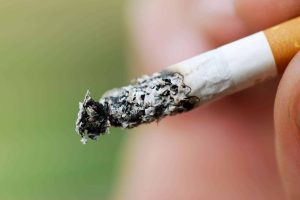Research carried out by Dr. Amir Levine, Eric R. Kandel, and Denise Kandel at Columbia University examined the link between nicotine and cocaine. When then exposed to cocaine than mice that had never had nicotine. Those carrying out the research therefore identified a nicotine-induced epigenetic effect in the brain’s reward system that could underlie the nicotine-exposed animals’ heightened responses to cocaine.
Link
It has also been suggested by NIDA supported research that Nicotine sensitizes the mouse brain to the addictive effects of cocaine. As this will reduce their vulnerability to abuse and become addicted to cocaine. An individual addicted to cocaine may find it easier to overcome their problem if they quit their smoking habit.
Two competing hypotheses have been advanced to explain why smokers are more likely than non-smokers to abuse other drugs. In addition, the results discussed above from Columbia group are in agreement with the “gateway” hypothesis. Which suggests that a person’s initial use of an addictive substance physiologically sensitizes his or her brain to the rewarding and addictive effects of other substances.
Drug Pattern
The opposing theory to the “gateway” hypothesis postulates that human drug use patterns simply reflect that the same genetic and environmental factors. That influence people to take a first drug also promote abuse of other drugs. Similarly, genetic and environmental factors are sure to have an effect on such patterns.
The researchers from Columbia University used a common laboratory protocol. In other words, to show that nicotine increases animals’ sensitivity to the rewarding effects of cocaine, this was called conditioned place preference. Which refers to the protocol that utilizes animals’ tendency to frequent places where they have had rewarding experiences. The greater the reward, the stronger the inclination.
Scientific Data
The researchers systematically gave one group of mice nicotine in their drinking water. For the other group plain water over a period of 11 days. On days 8 through 11, they injected all the mice once daily with cocaine, the mice were deemed to find cocaine rewarding. Similarly, if they subsequently loitered and stuck around in the cage area where they had received their cocaine injections.
The researchers found that the nicotine-exposed mice spent 78% more time in that area. Than mice in the control group that received no nicotine. In this instance, even though every single mouse in the experiment had been given the same number of cocaine injections. This result indicates that the mice exposed to nicotine had a greater sensitivity to cocaine’s rewarding effects.
See our page on all features of cocaine addiction.
Rehabilitation
If you have an issue with cocaine addiction, there is hope, a way out of your addiction. Treatment is a good option, if you cannot stop using through AA/Ca/NA. They will teach you the tools to live life clean and sober, without the need to use a substance to shun away from your feelings and problem areas in your life. To live life on life’s terms. To be able to manage live and become the person you once were.
We can help people who suffer from addiction to alcohol, drugs, food and gambling. You can book a free assessment with us and come and look around our clinic with no obligations. You can alternatively just call us, if rehab is not an option and we can guide you to the services that are available to you in your area.
Call the Haynes Clinic on 01462 851414 for confidential advice with your addiction.

